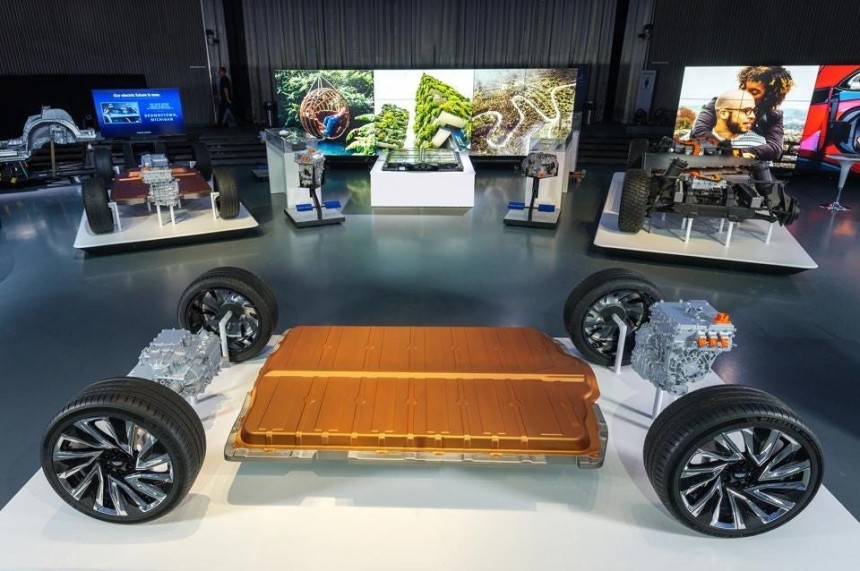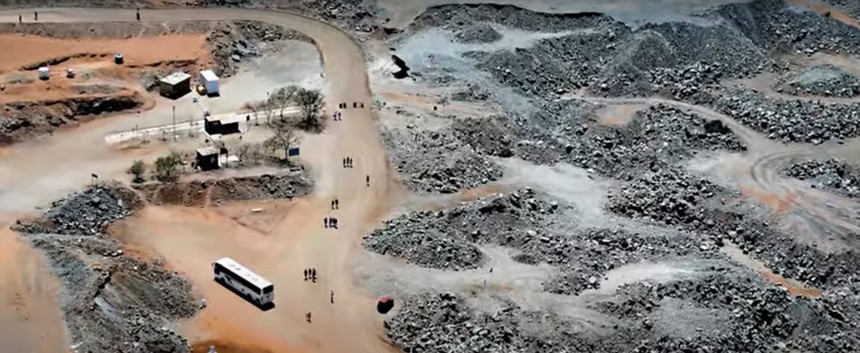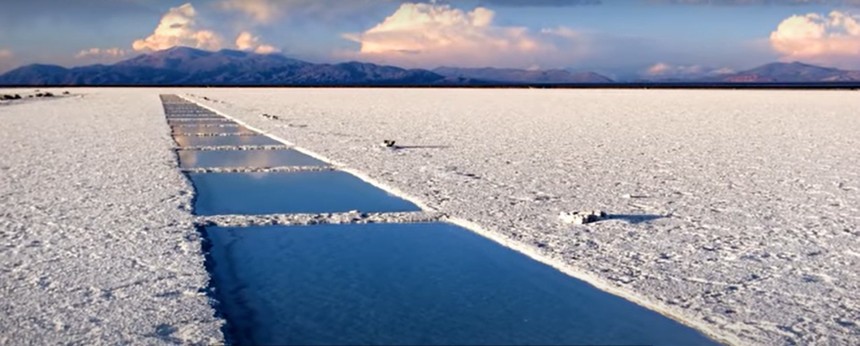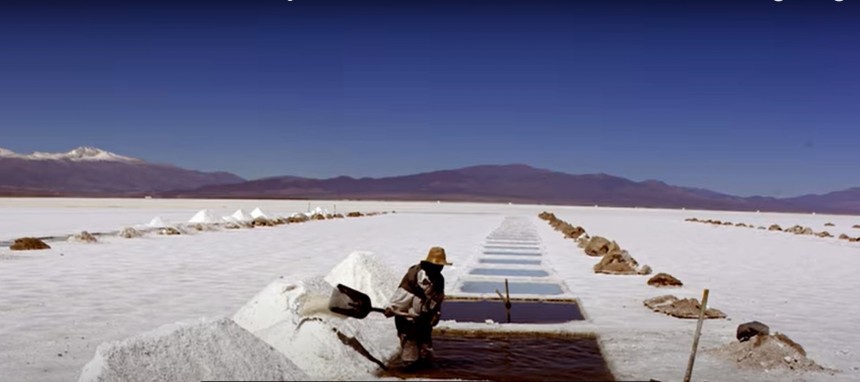It should come as no surprise to anyone that the demand for electric vehicles is expected to continue and even accelerate beyond what the world has experienced over the last couple of years. By the end of this year alone, just days from now, revenue from sales of electric vehicles is projected to reach $388 billion.
What's more, the EV market is expected to grow at a 16.84% clip over the next four years, reaching a staggering $846.7 billion by the start of 2027. Key factors that figure into that growth forecast include the acceleration of charging infrastructure in key markets and, of course, the overall economy as a whole.
Those numbers reflect forecasted consumer demand without any consideration given to manufacturers' ability to meet it. Manufacturers from established legacy companies that are transforming into EV manufacturers to EV startups have a singular universal concern as they move forward.
The batteries that are required to provide the energy for the electric motors to drive the vehicles to and fro are the key to the EV movement's future. Without these vital power sources, the EV would be no more powerful than a grocery cart.
There are three main factors with regard to electric vehicle batteries; cost, availability, and developing battery technology.
Cost is a huge concern for manufacturers, and a decrease in EV battery cost is one of the biggest guiding principles in EVs taking over the roadways from gas-powered vehicles. At the center of the issue is the cost of the central material in these batteries, lithium.
However, controlling costs will be a circus act for manufacturers without the acceleration of new battery technology. The reason for this is that the top 10 electric vehicle battery manufacturers in the world supplying a whopping 92% of the world's EV batteries are SE Asian countries. Now that may not immediately seem alarming until the list is broken down.
Chinese companies supply 56% of the world's EV batteries followed by South Korea (26%), and Japan (10%), according to Visual Capitalist. With so few suppliers, Econ 101 would suggest that any opportunity to lower costs would be a pipe dream.
China has become the dominant global supplier of EV batteries simply because it essentially controls the supply of lithium. According to Chemical and Engineering News, "An additional issue is that China controls almost 60% of the world’s capacity for processing raw lithium products into battery-grade chemicals. Some Western countries are concerned that if lithium supplies fall short, Chinese companies will meet the needs of their own rapidly growing EV market first."
To make matters worse, China is responsible for 80% of global battery raw material processing. It is not only the mining interests they have in lithium-rich Chile. But their ability to process the raw material into battery-grade lithium is what should concern everyone.
Sounds familiar? The world is becoming dependent on a singular country for a critical raw material reminiscent of the oil and gas industry.
To counter China's dominance, last June, the U.S., Australia, Canada, Japan, South Korea, and many European countries established the Minerals Security Partnership to lock up a non-Chinese supplier of critical raw materials, including lithium.
That begs the question: How much lithium is out there that is not Chinese-controlled?
So, to put the need for lithium into perspective, the world needs 2 billion electric vehicles to get to its goal of net zero emissions by 2050. A lithium-ion battery pack for an EV contains about 8 kgs of the non-ferrous metal known as 'white gold.' Total lithium production was 9.7 million kgs last year, enough to produce roughly 11.4 million EVs-a number the industry could hit soon. With global reserves sitting at 20 billion kgs, according to the US Geological Survey.
Using the same calculation regarding the amount of lithium in a single battery, the amount of reserves would be enough to manufacture 2.5 billion EV batteries, exceeding the number needed to hit net zero.
Good news, right? Not exactly, as lithium is not only used in electric vehicle batteries. The metal is also used in the batteries of smartphones, laptops, planes, trains, and bikes, among other applications.
The availability issue is relative to cost, which brings us around to the most critical issue that will come to signify the maturation of the electric mobility movement around the glove-Innovation.
Let's add collaboration to innovation and we have seen both already in the form of partnerships between mass-market automakers and established battery manufacturers. For example, Tesla and Panasonic have been joined at the hip in terms of EV batteries for years. Another example is the joint venture between LG Solutions and GM that will produce the flexible Ultium battery platform.
Both are wonderful examples, but they still require that precious cream-colored. For the sake of all the dollars companies are pouring into their factories to transform them from gas-powered to EV manufacturing, let's hope they find a solution to the lithium issues.
Whether it be via innovation that removes or limits the lithium content from batteries or through a supply source, a solution needs to be found to stay the course.
In closing, while preparing for the piece, a curious thought crept into my head. Would the electric vehicle movement have the legs it currently has if the biggest lithium reserves were beneath Manahattan or say, London? Isn't it profoundly convenient that the biggest reserves are found out in the middle of Nowheresville, where the environmental raping of the area's landscape is out of view?
Those numbers reflect forecasted consumer demand without any consideration given to manufacturers' ability to meet it. Manufacturers from established legacy companies that are transforming into EV manufacturers to EV startups have a singular universal concern as they move forward.
The batteries that are required to provide the energy for the electric motors to drive the vehicles to and fro are the key to the EV movement's future. Without these vital power sources, the EV would be no more powerful than a grocery cart.
There are three main factors with regard to electric vehicle batteries; cost, availability, and developing battery technology.
However, controlling costs will be a circus act for manufacturers without the acceleration of new battery technology. The reason for this is that the top 10 electric vehicle battery manufacturers in the world supplying a whopping 92% of the world's EV batteries are SE Asian countries. Now that may not immediately seem alarming until the list is broken down.
Chinese companies supply 56% of the world's EV batteries followed by South Korea (26%), and Japan (10%), according to Visual Capitalist. With so few suppliers, Econ 101 would suggest that any opportunity to lower costs would be a pipe dream.
China has become the dominant global supplier of EV batteries simply because it essentially controls the supply of lithium. According to Chemical and Engineering News, "An additional issue is that China controls almost 60% of the world’s capacity for processing raw lithium products into battery-grade chemicals. Some Western countries are concerned that if lithium supplies fall short, Chinese companies will meet the needs of their own rapidly growing EV market first."
Sounds familiar? The world is becoming dependent on a singular country for a critical raw material reminiscent of the oil and gas industry.
To counter China's dominance, last June, the U.S., Australia, Canada, Japan, South Korea, and many European countries established the Minerals Security Partnership to lock up a non-Chinese supplier of critical raw materials, including lithium.
That begs the question: How much lithium is out there that is not Chinese-controlled?
Using the same calculation regarding the amount of lithium in a single battery, the amount of reserves would be enough to manufacture 2.5 billion EV batteries, exceeding the number needed to hit net zero.
Good news, right? Not exactly, as lithium is not only used in electric vehicle batteries. The metal is also used in the batteries of smartphones, laptops, planes, trains, and bikes, among other applications.
The availability issue is relative to cost, which brings us around to the most critical issue that will come to signify the maturation of the electric mobility movement around the glove-Innovation.
Both are wonderful examples, but they still require that precious cream-colored. For the sake of all the dollars companies are pouring into their factories to transform them from gas-powered to EV manufacturing, let's hope they find a solution to the lithium issues.
Whether it be via innovation that removes or limits the lithium content from batteries or through a supply source, a solution needs to be found to stay the course.
In closing, while preparing for the piece, a curious thought crept into my head. Would the electric vehicle movement have the legs it currently has if the biggest lithium reserves were beneath Manahattan or say, London? Isn't it profoundly convenient that the biggest reserves are found out in the middle of Nowheresville, where the environmental raping of the area's landscape is out of view?










